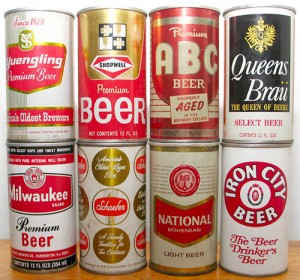So, imagine you realize you have an eating problem and finally decide to seek help. You go through some intensive therapy—maybe even in-patient—but when it’s over, you’re still bingeing. What do you then? That’s what HealthyGirl.org reader Lucia, 22, wants to know.
Q. I went to treatment almost a year and a half ago for binge eating disorder and depression. I am incredibly grateful to have had the opportunity for recovery as I know many people hardly get a Saturday to themselves. However, I am still bingeing. I was armed with the illusion that if I could just be grateful enough, present enough, and allow myself to gulp color, all would be cured. This is not the case as I have been absolutely obsessed with food since I was a (much more adorable and approachable) 3-year-old.
I am absolutely terrified because I am transferring schools and I know that if I am bingeing it is literally not worth it for me to pay the money to be there. I need a plan. Do you still plan out your food everyday? Do you have any food that is “off-limits”? —Lucia, 22
A. You’re right, you do need a plan. But I hope you’ll try not to worry too much about whether it’s the “right” one—those of us with eating issues tend to have such black-and-white thinking (“There is a correct choice and if I don’t make it, it’s all ruined!”) that we can get paralyzed. And the fact is, as long as your plan involves taking steps toward healing—moving forward bit by bit no matter how hard it gets or how scared you are—it will help you.
I was just telling someone the other day how I never received therapy or treatment specifically for eating issues; the path I took was more winding, and pretty slow: I started with self-help books in my teens, moved to talk therapy in my early 20s (and stuck with it), then went to a support group. It was during the three years I spent going to weekly (or sometimes twice-weekly) meetings with other binge eaters that I made the quickest progress—those years got me to the point where I finally felt I was recovered from binge eating disorder.
I don’t know what kind of treatment you received, but I do know that it makes sense that finite “treatment” may not enough to heal us completely from something so deeply rooted. A lot of research shows now that binge eating may be genetic—it takes time to reprogram our brains and bodies to no longer require excess food to deal with life!
To answer your specific questions about the way I live and deal with food now: No, I don’t have any food that is off limits, and I don’t plan my food out every day anymore. But those are both things I used to do. For a long time! They were important steps in my recovery process that helped me get to where I am now, a point at which I don’t obsess over food for the most part, rarely feel out of control, and eat intuitively more often than not. Getting here from where I was when I was bingeing three or more times a week in front of the television, downing a half-pound of peanut butter M&Ms and a bagful of fast food at a time was a series of small steps that took several years. Each step was important and served it’s purpose.
For your next step, maybe you could read a new book about your relationship food. Or find an outpatient therapist or support group. As long as you take a step, any step, you’ll be headed in the right direction!
Now, to the rest of the HealthyGirl.org community: What were the steps you took toward recovery, and in what order? I think it’s helpful to see that we all have our own paths, but they all lead to the same place: Sanity about food and more happiness in life! xo…Sunny






It’s so heartbreaking to read these things and remember..I am 61 now, and still fighting..
at this time, I am trying, with only partial success, to do a paeo-style diet and no grains..partial because I cheat sometimes, but I am losing slowly, and realize after all those really lost years of hating myself that it has to be at a tortoise pace, and you have to find out what works for you..
Recently I read about the concept of obesity as genetic..I suppose in my family’s case, it’s certainly true, but most of us are fairly healthy despite our weight issues, so the part of that ‘obese’ philospphy that is culturally related must be taken into consideration..in many cultures, a ‘big’ woman is considered beautiful..we need to work on that in North America..
If we were acceptable when healthy and happy, and not because of, or in spite of size, possibly much of our derpression and self-destructive eating might disappear..
Hang in there, Lucia. I was super bulimic in college and post-grad (like two binges a day) and took probably thousands of laxatives over the years. I started to faint so I found out I had an electrolyte imbalance (life threatening) so I had to stop purging-and I was afraid of dying so I did-I kept binging even through group therapy etc. I gained around 15 pounds in a semester and looked bloated.
Studying for a professional exam, I relapsed and started using laxatives-stress from that plus I was in a couple accidents including hitting a woman on a bicycle which stressed me out further. I lost the weight I’d gained and then gradually stopped purging again. This was back in my mid20s.
I never really totally lost the tendency to eat to calm myself. I did stop doing all out binges because without purging, that makes you gain… Interestingly, I started gaining weight a few pounds per year in my 30s until I was pretty overweight in my early 40s-and I developed borderline blood sugars and pretty high blood pressure-stage 2 if you know what that means-again, lifethreatening. That makes me change.
So I lost weight. Around 30 pounds worth. And I have more of an issue of food thoughts now than when I was fatter-I think because I tried really hard to not emotionally eat to lose the weight which drove up anxiety. Plus I’ve had some life stresses including financial and the loss of a loved kitty last year.
I took Geneen Roth’s Women Food and God teleclass and read her book. I do recognize the spiritual dimension to this, but that doesn’t make it easier to avoid emotionally eating. So I’ve been seeking professional help with a therapist who gently pointed out some errors in my thinking-for example, that I have to earn my worth. So I’m still learning and growing and overcoming and probably will do this gradually for my life…
What I’m trying to say is, that I stopped purging, and then I stopped binging, and then I am now dealing with emotional eating that’s not really enough to qualify as binge eating disorder but it’s something… It doesn’t need to go away all at once and you don’t have to regret the therapy you’ve had because it did make a difference-you just need more help and time and processing to get over your binging. I’m over twice your age. It’s taken me time and I’m still dealing with stuff.
Be patient with yourself. I’ve been reading a book I bought used called “A Substance Called Food” by Gloria Arenson (out of print). It’s helpful because she has this 4 part system:
So you’ve binged. Step 1-Behavior. Record how intense it was on a scale of 1 to 10 like an earthquake. Remember the richter scale is geometric, not linear. So if you ate a 7.1 binge, you’d go to step 2:
Emotional level. For each binge ask “What in my life is a 7.1?” (or whatever you rated it). What situation or relationship is involved? What strong feelings arose from that situation or experience? For example, the person who ate a 7.1 could say that her health was a 7.1 and she was having headaches every day because of sinusitis and she was really angry at her body for betraying her…
Step 3 is Cognitive: What did you tell yourself about that upsetting situation that caused you to feel angry, frustrated, helpless or guilty? “These damned headaches, I can’t seem to get rid of them…”
Step 4 is Transpersonal: Retrieve your power. How can you stop making yourself feel like a victim? This involves taking action-what can you do to change relationship or situation? and/or Changing your attitude: What can you tell yourself about the difficult situation or relationship that would lead to more positive/satisfying feelings?
examples-visiting an acupuncturist or learning relaxation techniques. Using a neti pot, are actions. attitude: writing a letter to your sinuses thanking them for the wonderful protective job they do in filtering out stuff in the air, but they are overdoing the protection-and you don’t need them to be so zealous-but you shift your focus to appreciation…
Play with these ideas-and please be patient with yourself.
What an emotional eye opener!
What in my life is at the same intensity as my binge last night…?
I started crying as I read your post. Funny how you can know something intellectually, but have to see it a certain way to feel it.
You’ve reminded me to remember “the extent of the coping mechanism indicates the depth of the pain,” and to try and be compassionate with myself.
Not an easy habit to develop after so many years of criticism, but I’m working on it.
Hi Lucia,
I think a lot of my recovery has occurred over years when I really felt that nothing was changing.
Often, even when you’re still having binges, things can be starting to shift, and perhaps if you look back on the last little while you can appreciate that there have been changes in your attitudes and awareness. Sometimes, these changes just slowly build and then your behaviour will also start to shift. I think this is what has happened to me. Books, support groups, a counsellor, and food journals really helped me. Also I think I slowly became aware of the cost of my eating disorder, and the amount of energy it was taking out of me. And I have come to think that I deserve more than a life like that.
Sunny and Erica have written some really inspiring posts recently about going back to basics and starting life anew. It’s never any shame to take a clean view of things and a clean start. It doesn’t mean you’ve failed. It just shows how powerful these eating disorders can be. And it’s testament to your commitment to look after yourself and care for yourself.
Best of luck xxx
My first important step was deciding I’d had enough with how I feel about me and food and deciding to change it.
For me, I can’t view my relationship with food (and most importantly, myself) as going from disordered to recovered. It just doesn’t make sense to me. I look at it as changing and moving forward. It takes off the pressure of feeling like how do I get from point A to Z, and it also differentiates it from the dieting mentality - how do I get from this body to that thin one. Realising this was my next step.
I guess the rest of it isn’t in a series of linear steps. It’s more like lots of stepping stones I hop round, and sometimes move sideways and backwards, but they ultimately head in a forwards direction.
These include:
- Reading self help books (and not reading dieting books disguised as self help books - i.e. none with meal plans etc. If the focus is more on what I’m eating than my feelings, it’s out.)
- Going to group sessions (in the UK we’re lucky to have them once a month, so I arrange fortnightly ones with girls from a food and self-esteem course who are battling a variety of EDs)
- One to one counselling (tried on several occassions, and each time getting a bit better at dealing with things and caring about me)
- Writing (journalling, tweeting, emailing myself, emailing other support services)
- Taking risks (eating a new food, going to a new place, talking to a new person)
- Changing my thinking (challenging my Critic voices, talking in my head more kindly)
SO well said!!! Could not agree with you more. Sometimes a couple steps back can ultimately help you take a huge leap forward.
I forgot the biggest thing!
FORGET DIETING.
Eliminating even the idea of it when it comes into my head has been a huge thing. I refuse to diet - you will end up bigger in the long term. It served me poorly with anorexia and BED and I refuse to go there again. Eating for your tastes and health is one thing; following anything that limits, restricts or even tells you what to eat loads of is only a route to more binging IMO
Oooh and reflection!
This is one of the most useful things about therapy - the therapist will help you to reflect and make a bigger deal over the good stuff you did!
There are so many things you can do and try, and I suppose it’s giving a few bits a go and not feeling bad if they dont help.
Thing is, you need to start to look at it in terms of what makes you feel happier than eat less/binge less, as this comes when you feel better and not the other way round, in all honesty
[…] used to wonder what the heck the wrong with me that I couldn’t stay on the “right” and healthy path. But what I eventually realized was that I was on the right and healthy path! Every misstep was a […]
Recognizing I had an ed was huge. Going into therapy and addressing it was the next step. Giving up dieting, as has been said, was completely necessary. Surrounding myself with as much positive support as I could helped a lot.